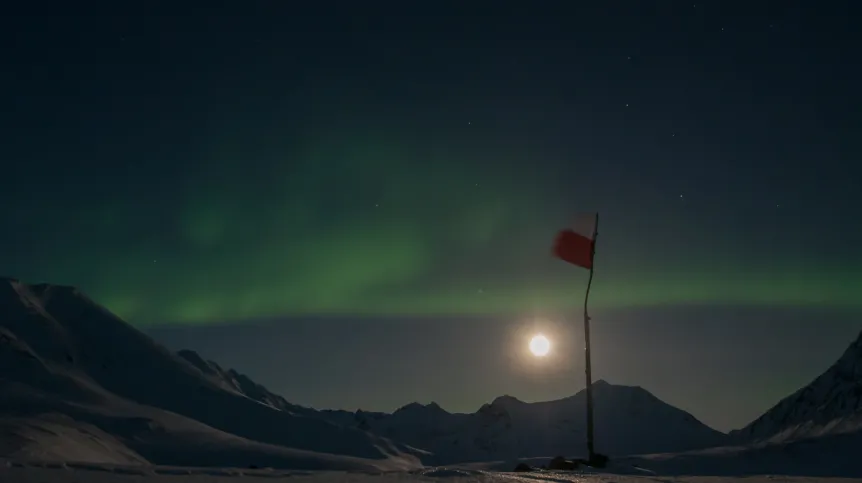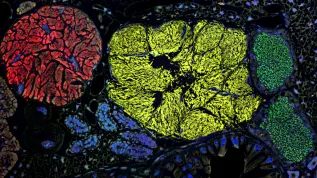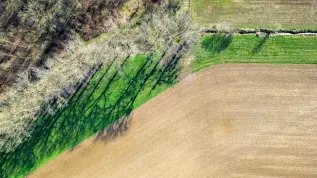
How does the chemical composition of water in the Revelva catchment on Spitsbergen change? How do pesticides, heavy metals entering the waters as a result of human activities, alter local ecosystems? Katarzyna Kozak, PhD student at Gdańsk University of Technology is looking for answers.
The 36th polar expedition to the Polish Polar Station Hornsund of the Institute of Geophysics PAS ended recently. The station is located near the mouth of the fjord Hornsund, in the southern part of the island of Spitsbergen West. For more than 50 years, the facility has been serving as a base for expeditions organized by Polish and foreign research institutes and universities that carry out research programs on polar regions.
From October to March, the station in Hornsund usually houses 10 people from the overwintering group. In spring and summer, many scientific groups arrive from around the world. In July 2014, one of these visitors was Katarzyna Kozak - PhD student from the Department of Analytical Chemistry, Faculty of Chemistry, Gdańsk University of Technology.
Kozak with her field assistant MSc. Małgorzata Szopińska conducted research on the modification of the chemical composition of water in the catchment of Revelva (Hornsund area) by the pollution caused by human activities.
"Even at the stage of MA thesis I was intrigued by the pristine area of the Arctic, paradoxically heavily threatened by increasing human pressure (human activities - PAP), manifested in the increase of the concentration levels of pollutants in the individual components of the ecosystem - said Katarzyna Kozak. - Due to global migration of pollutants, polar region and in particular the Svalbard archipelago, is subject to their influence."
PhD student at Gdańsk University of Technology has set herself the task of investigating the paths of movement of pollutants, including pesticides, polycyclic aromatic hydrocarbons, heavy metals, in samples from the catchment of the river Revelva. She will analyze samples of surface water and precipitation from snow cover, glaciers, lakes, rivers, streams and watercourses, which are concentrated in the catchment. Revelva catchment is located far away from potential local sources of pollution. Therefore - as Kozak explained - any pollution detected in the area is the result of the global migration of hazardous substances.
The results may contribute to increasing the knowledge of the spatial distribution of pollutants in the environment. They will also be a potential source of information needed when planning projects for the protection of living organisms and their environment.
The study was financed by the grant project Preludium of the National Science Centre. Trip to Spitsbergen was possible with the substantive support of Prof. Żaneta Polkowska and Prof. Jacek Namieśnik from Gdańsk University of Technology and Prof. Piotr Głowacki from the Institute of Geophysics PAS.
Recently, Dr. Katarzyna Jankowska of the Department of Civil and Environmental Engineering, Gdańsk University of Technology returned after one-yearstay at Polish Polar Station Hornsund at Spitsbergen. She was deputy head of the wintering team and dealt with administrative matters of the expedition. She also worked as an educator for Eduscience project for 250 Polish schools, and described daily lives of polar explorers on her blog.
Follow expedition of scientists to the West Spitsbergen on Facebook: https://www.facebook.com/hornsund
PAP - Science and Scholarship in Poland
ekr/ agt/ mrt/
tr. RL













